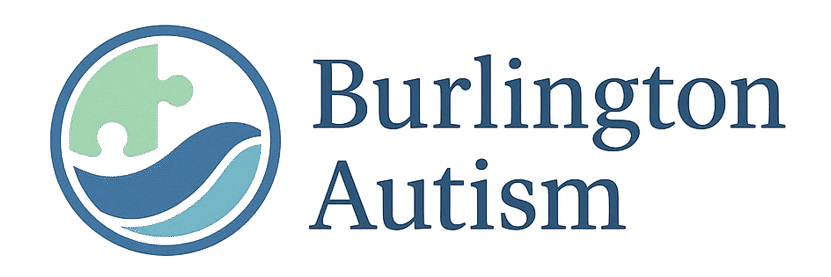Understanding Autism Funding BC: A Comprehensive Guide
Discover vital information on autism funding BC. Unlock resources, eligibility, and support options for families. Start your journey today!
What You Need to Know About Autism Funding BC
Autism funding in British Columbia (BC) is an essential resource for families navigating the complexities of autism spectrum disorder (ASD). Understanding the various funding options available can significantly alleviate the financial burden associated with therapies, interventions, and additional support services. In BC, parents and guardians can access several programs designed to assist children diagnosed with ASD. This comprehensive guide aims to break down the types of funding available, eligibility criteria, and additional resources that can help families make the most out of their funding claims.
Many families are often overwhelmed by the processes involved in obtaining autism funding in BC. With myriad options and complex forms, it can be daunting. However, securing funding is a crucial step in accessing the right support for children with autism and ensuring they receive the services they need for their development. Whether you are a parent newly diagnosed or someone seeking more resources, understanding the available funding options can make a real difference.
The primary funding options for autism in British Columbia include the Autism Funding Program, the Disability Assistance Program, and various grants and scholarships. Each of these programs serves a distinct purpose and caters to various needs and circumstances. For instance, the Autism Funding Program provides funds specifically for children under six years of age with a confirmed diagnosis of ASD to spend on eligible services. On the other hand, the Disability Assistance Program includes broader support for families experiencing the long-term challenges associated with autism.
Each program offers different amounts and specific terms of use for the funding, making it critical for parents to understand each option thoroughly. Moreover, families should be aware of the possibility of applying for additional funding through grants and scholarships, which can augment the support received through standard programs.
Finally, keeping up with changes in legislation and policies surrounding autism funding in BC is crucial. Each year, adjustments may be made, and staying informed can help families advocate effectively for their needs. With this knowledge in hand, parents and caregivers can confidently navigate the funding landscape, ensuring their children get the resources they deserve.
Eligibility Criteria for Autism Funding in BC
Understanding the eligibility criteria for autism funding in BC is a vital step in ensuring your child receives the support required for their development. The primary funding option available— the Autism Funding Program— provides financial aid to families of children diagnosed with ASD. However, specific eligibility requirements must be fulfilled.
Firstly, children must be under the age of six to qualify for this program, and they need a confirmed diagnosis of autism from a qualified medical professional, such as a pediatrician or child psychologist. The diagnostic assessment must meet the guidelines set by the Medical Services Plan (MSP) of British Columbia. It is also important to emphasize that the funding primarily targets services and programs focused on early intervention, as research suggests that early intensive behavioral intervention can lead to significant improvements in skills and abilities.
To access the Autism Funding Program, parents are required to complete an application form, which includes essential details such as the child’s diagnosis and the level of support needed. The application process can feel overwhelming, but seeking assistance from local autism organizations can ease the burden. Moreover, once your application is submitted, families may receive support in using the funds effectively, ensuring they access the services most beneficial to their child.
In addition to the Autism Funding Program, families may be eligible for other supports, including the Disability Assistance Program. This program is designed for children with more complex needs requiring ongoing support. By understanding the eligibility criteria and gathering necessary documentation, families can streamline their experience, making the process of securing funds much more manageable.
Programs and Services Supported by Autism Funding BC
The autism funding BC provides invaluable financial resources that families can utilize for a range of programs and services tailored to children with ASD. The funding allows families to choose and access effective therapies and interventions that cater to their child’s unique needs.
Among the most widely used services supported by autism funding are Applied Behavior Analysis (ABA) and Early Intensive Behavioral Intervention (EIBI). Both methods are grounded in evidence-based practices and focus on enhancing communication, social skills, and behavioral patterns in children with autism. Parents can utilize their funding to hire therapists or organizations that specialize in these areas, receiving support from trained professionals who can tailor interventions to their specific struggles and strengths.
In addition to behavior therapies, families can also use autism funding to support speech therapy, occupational therapy, and social skills training. These services focus on helping children improve their verbal and non-verbal communication skills, sensory processing, and social interactions, allowing them to better integrate into typical social settings. If your child requires additional help or specialized programs, researching local and regional services can reveal numerous options waiting to be explored.
Another excellent category of services funded through autism funding BC includes recreational programs. Many organizations facilitate summer camps and sports activities specifically designed for children with ASD, promoting social interaction, physical wellness, and self-confidence in a safe and supportive environment. Participating in recreational activities not only helps foster essential life skills but also assures families that their child enjoys activities alongside peers in similar situations.
Finally, parents should remember to keep a careful record of expenses incurred and maintain corresponding receipts. Precise tracking can ensure that families stay organized and prevent any potential disputes during reimbursement claims. Taking the initiative to educate, research, and network within the community is key to making the most of autism funding and unlocking meaningful services for children.
Resources Available for Families Navigating Autism Funding BC
Given the complexity and challenges surrounding autism funding in BC, families can benefit significantly from utilizing available resources. Numerous organizations and agencies offer support, guidance, and information on navigating the often-daunting process of securing funding. Understanding where to seek help can be pivotal in ensuring your family accesses the right services.
One of the primary resources available to families is the Autism Society of British Columbia. They offer a wealth of information on autism funding, eligibility requirements, and available services. Their team can assist families in making informed decisions about the best options for their child’s needs and connect them to important local services. Furthermore, the organization often organizes workshops and events where parents can learn more about autism, treatments, and funding opportunities, networking with others in similar situations.
Building a network within the community is another great way for families to gather information. Engaging in local parenting groups, forums, and meet-ups can facilitate the exchange of experiences, tips, and insights on autism funding. Families can share their stories, successes, and challenges, providing peer support that can be incredibly reassuring during moments of uncertainty.
In addition to these community resources, governmental resources can also provide essential information. The Government of British Columbia’s official website holds detailed descriptions of the various autism funding programs, eligibility criteria, application processes, and any recent updates or changes to programs. Keeping current is crucial, as policy shifts can significantly impact what services are available to families.
Lastly, advocacy groups can also serve as invaluable allies for families seeking assistance in dealing with claims and navigating red tape. Several advocacy organizations exist to provide support in understanding the intricacies of the funding systems, ensuring parents feel confident in their applications and overall journey. Many offer specific guidance on preparing necessary documentation, submitting forms, and appealing decisions.
Conclusion
Navigating autism funding in BC can be a complex but rewarding endeavor. For families, understanding the various funding options, eligibility criteria, and available services is essential for securing the support necessary for their children. By utilizing resources from organizations and building networks with other families, it becomes possible to alleviate some of the burdens often associated with managing autism care.
Ultimately, autism funding in BC is designed to positively impact the lives of children with ASD, offering avenues for growth, development, and independence. With the right information and support, parents can play a crucial role in ensuring their children receive the resources they need to flourish. Embrace the journey filled with knowledge and community—your family deserves the best care, and the resources are there to help you achieve that.
FAQs
1. What exactly is autism funding BC?
Autism funding BC refers to the financial support programs available to families with children diagnosed with autism spectrum disorder in British Columbia. These funds can be utilized for various therapies, interventions, and support services designed to meet individual needs.
2. How do I apply for autism funding in BC?
To apply for autism funding, families must complete an application form and provide documentation regarding their child’s diagnosis. Information about the application process can often be obtained from both government websites and local autism organizations.
3. Can I use autism funding for therapies other than ABA?
Yes, families can use autism funding for various therapies, including speech therapy, occupational therapy, and recreational programs. It’s essential to consult with local autism services to identify the best options for your child.
4. What documentation do I need to provide for my funding application?
Families typically need to provide documentation regarding the child’s diagnosis, assessment reports from qualified professionals, and any relevant medical history. Specific requirements may vary between funding programs.
5. Are there any annual limits on autism funding in BC?
Yes, there can be limits determined by the specific funding program. For instance, the Autism Funding Program has a set amount allocated annually per child, which can vary. It’s essential to review guidelines and stay informed of any changes to funding limits.







